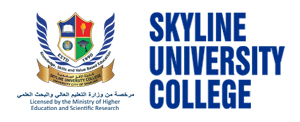Shops / organizations
A trained optometrist is most likely be work in small independent optometrists or for a large national organization. They may also open their own shops. They use their knowledge of the workings of the eye, eye diseases and conditions to carry out eye examinations. They give advice on visual problems and prescribe spectacles, contact lenses and low vision aids. They are also be trained to detect eye disease and underlying health conditions such as diabetes or high blood pressure.
Working in a Hospital
Optometrists may also work in hospitals or clinics where they treat those cases which require urgent attention. It’s a busy, fast paced environment and they work alongside ophthalmologists (medical doctors specializing in the eye) as part of a large team of eye-specialists.
Research
Optometrists may start their career in research with a PhD (Doctorate) or even after masters, and carry out a program of research on chosen topic. They may undertake independent research with funding from an organization like the College of Optometrists, or work in the research department of a university or hospital.
Teaching
Optometrists can also work as teachers in post-secondary education.
Consultant
Optometrists can also work various companies manufacturing optical goods as consultants.
| Stream | Graduation | After Graduation | After Post Graduation | |
|---|---|---|---|---|
|
Path 1
|
Clear Class XII with Science Stream with Biology | Pursue B.Optom ( Bachelors in Optometry) for 4 years (3 years study + 1 year internship) | Pursue M.Optom for 2 years | Pursue O.D (Doctorate in Optometry) for 2 years |
|
Path 2
|
Clear Class XII with Science Stream with Biology | Pursue B.Sc. Optometry for 3 years | Pursue M.Sc. for 2 years | Pursue O.D (Doctorate in Optometry) for 2 years |
|
Path 3
|
Clear Class XII with Science Stream with Biology | Pursue Diploma in Ophthalmic Assistance / Ophthalmic Technology for 2 years | Pursue Post Graduate Diploma for 2 years OR B.Optom for 2 years (direct admission in 3rd year) |
[/td_block_text_with_title][td_block_text_with_title custom_title=”WORK DESCRIPTION” header_color=”#dd3333″ separator=”” tdc_css=””]
- Examine the vision of the patients of all ages
- Check for near/far sightedness, eye coordination, colour differentiation or diseases like glaucoma, cataract, diabetes, etc.
- Prescribe spectacles, contact lenses or medication when required
- Recommend tests for accurate treatment
- Remain updated on the recent research and discoveries
- Communicate with empathy and care
- Manage case histories and accounts of the patients
- Coordinate properly with the staff members
- Perform duties in line with the ethical standards
[/td_block_text_with_title]

[formcraft id=’72’]
